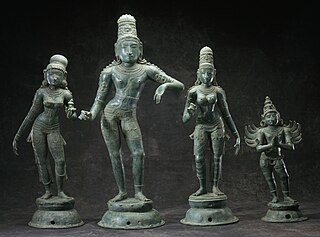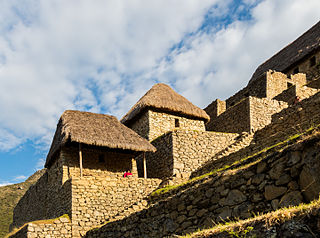
Historical classification groups the various history topics into different categories according to subject matter as shown below.

Historical classification groups the various history topics into different categories according to subject matter as shown below.
See also Periodization.
Although there is arguably some intrinsic bias in history studies (with national bias perhaps being the most significant), history can also be studied from ideological perspectives, which practitioners feel are often ignored, such as:
A form of historical speculation known commonly as counterfactual history has also been adopted by some historians as a means of assessing and exploring the possible outcomes if certain events had not occurred or had occurred in a different way. This is somewhat similar to the alternate history genre in fiction.
Lists of false or dubious historical resources and historical myths that were once popular and widespread, or have become so, have also been prepared.

Asia is the largest continent in the world by both land area and population. It covers an area of more than 44 million square kilometers, about 30% of Earth's total land area and 8% of Earth's total surface area. The continent, which has long been home to the majority of the human population, was the site of many of the first civilizations. Its 4.7 billion people constitute roughly 60% of the world's population.
Hinduism is an Indian religion or dharma, a religious and universal order by which its followers abide. The word Hindu is an exonym, and while Hinduism has been called the oldest religion in the world, it has also been described as sanātana dharma, a modern usage, based on the belief that its origins lie beyond human history, as revealed in the Hindu texts. Another endonym for Hinduism is Vaidika dharma.

Indian religions, sometimes also termed Dharmic religions or Indic religions, are the religions that originated in the Indian subcontinent. These religions, which include Buddhism, Hinduism, Jainism, and Sikhism, are also classified as Eastern religions. Although Indian religions are connected through the history of India, they constitute a wide range of religious communities, and are not confined to the Indian subcontinent.
In historiography, periodization is the process or study of categorizing the past into discrete, quantified, and named blocks of time for the purpose of study or analysis. This is usually done in order to understand current and historical processes, and the causality that might have linked those events.

The Renaissance is a period of history and a European cultural movement covering the 15th and 16th centuries. It marked the transition from the Middle Ages to modernity and was characterized by an effort to revive and surpass the ideas and achievements of classical antiquity. Associated with great social change in most fields and disciplines, including art, architecture, politics, literature, exploration and science, the Renaissance was first centered in the Republic of Florence, then spread to the rest of Italy and later throughout Europe. The term rinascita ("rebirth") first appeared in Lives of the Artists by Giorgio Vasari, while the corresponding French word renaissance was adopted into English as the term for this period during the 1830s.
Eastern philosophy or Asian philosophy includes the various philosophies that originated in East and South Asia, including Chinese philosophy, Japanese philosophy, Korean philosophy, and Vietnamese philosophy; which are dominant in East Asia, and Indian philosophy, which are dominant in South Asia, Southeast Asia, Tibet, and Mongolia.

The historical Vedic religion, also known as Vedicism and Vedism, constituted the religious ideas and practices prevalent amongst the Indo-Aryan peoples of the northwest Indian subcontinent during the Vedic period. These ideas and practices are found in the Vedic texts, and some Vedic rituals are still practiced today. The Vedic religion is one of the major traditions which shaped Hinduism, though present-day Hinduism is significantly different from the historical Vedic religion.

The culture of Europe is diverse, and rooted in its art, architecture, traditions, cuisines, music, folklore, embroidery, film, literature, economics, philosophy and religious customs.

Medieval India refers to a long
period of post-classical history of the Indian subcontinent between the "ancient period" and "modern period". It is usually regarded as running approximately from the breakup of the Gupta Empire in the 6th century CE to the start of the early modern period in 1526 with the start of the Mughal Empire, although some historians regard it as both starting and finishing later than these points. The medieval period is itself subdivided into the early medieval and late medieval eras.

The history of Hinduism covers a wide variety of related religious traditions native to the Indian subcontinent. It overlaps or coincides with the development of religion in the Indian subcontinent since the Iron Age, with some of its traditions tracing back to prehistoric religions such as those of the Bronze Age Indus Valley Civilisation. Hinduism has been called the "oldest religion" in the world,{{refn|group=note|See:
The following outline is provided as an overview of and topical guide to history:

Oriental studies is the academic field that studies Near Eastern and Far Eastern societies and cultures, languages, peoples, history and archaeology. In recent years, the subject has often been turned into the newer terms of Middle Eastern studies and Asian studies. Traditional Oriental studies in Europe is today generally focused on the discipline of Islamic studies; the study of China, especially traditional China, is often called Sinology. The study of East Asia in general, especially in the United States, is often called East Asian studies.

Indian people or Indians are the citizens and nationals of the Republic of India. In 2022, the population of India stood at 1.4 billion people. According to UN forecasts, India overtook China as the world's most populous country by the end of April 2023, containing 17.50 percent of the global population. In addition to the Indian population, the Indian overseas diaspora also boasts large numbers, particularly in the Arab states of the Persian Gulf and the Western world.

History is the systematic study and documentation of the human past.

In world history, post-classical history refers to the period from about 500 CE to 1500 CE, roughly corresponding to the European Middle Ages. The period is characterized by the expansion of civilizations geographically and the development of trade networks between civilizations. This period is also called the medieval era, post-antiquity era, post-ancient era, pre-modernity era, or pre-modern era.

The Eastern world, also known as the East or historically the Orient, is an umbrella term for various cultures or social structures, nations and philosophical systems, which vary depending on the context. It most often includes Asia, the Mediterranean region and the Arab world, specifically in historical (pre-modern) contexts, and in modern times in the context of Orientalism. The Eastern world is often seen as a counterpart to the Western world.
This glossary of history is a list of definitions of terms and concepts relevant to the study of history and its related fields and sub-disciplines, including both prehistory and the period of human history.

The Western world, also known as the West, primarily refers to various nations and states in the regions of Australasia, Western Europe, and Northern America; with some debate as to whether those in Eastern Europe and Latin America also constitute the West. The Western world likewise is called the Occident in contrast to the Eastern world known as the Orient. The West is considered an evolving concept; made up of cultural, political, and economic synergy among diverse groups of people, and not a rigid region with fixed borders and members. Definitions of "Western world" vary according to context and perspectives.

Historiography is the study of the methods of historians in developing history as an academic discipline, and by extension is any body of historical work on a particular subject. The historiography of a specific topic covers how historians have studied that topic using particular sources, techniques, and theoretical approaches. Historiography is defined as "the study of the way history has been and is written – the history of historical writing", which means that, "When you study 'historiography' you do not study the events of the past directly, but the changing interpretations of those events in the works of individual historians."